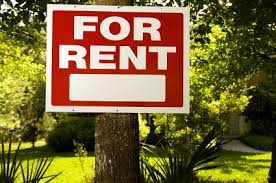What should I be concerned about when signing a lease? (KRS 383.565)

Before signing any contract or lease you should make sure you understand all of the components and terms. The language can be tricky and generally favors the landlord, so ask questions or ask for help from someone knowledgeable or a lawyer. As soon as you sign the lease you have established a relationship with your landlord for the duration of the agreed upon terms. In order to ensure your rights, always keep records of your rental payments, written repair requests, or other communication you have with your landlord. You should know that not every county in Kentucky has a Tenant Landlord Act.
What are my obligations as a tenant? (KRS 383.605)
Your main obligation as a tenant is to pay your rent on time and care for the property you are renting by complying with any housing or building codes that pertain to health and safety, maintaining a clean property, disposing of trash, keeping the plumbing clean and clear, and using appliances in an appropriate manner. You should also not damage, destroy or harm the property in any way and be mindful and respectful of your neighbors. Additionally, be aware that it is customary to give your landlord thirty (30) days notice before you move out. Be sure to check the exact terms on moving out or ending your lease obligation, there may be penalties for ending it early or without following an exact protocol.
What are the obligations of the landlord? (KRS 383.595)
In addition, your landlord will have duties to you that may or may not be included in the lease. They must ensure the property is well-maintained with working heating, plumbing and electricity. The landlord should be following all applicable building codes and make sure that necessary repairs are completed in order to keep the property in good habitable condition. Your landlord is not allowed to enter the premises of the property without your advanced permission except for an emergency.
What is a security deposit and how is it used? (KRS 383.580)
A security deposit is an amount of money required by the landlord to hold at the beginning of the lease period. Its main purpose is to provide the landlord a source to pay for any property damage, aside from normal wear and tear that may have occurred during your rental period or to cover any missed rent or late fees you may have accrued. At the beginning of your rental period both you and your landlord will complete a checklist that outlines previous damages that you will not be liable for. Take pictures of the property before you move in, so you can have visual proof of the initial condition. When you move out the landlord is required to refund in full your deposit within thirty-sixty (30-60) days, if not damages have occurred. If there are damages, the landlord must furnish you a list and associated monetary amount that they will deduct against the deposit.
Eviction
Your landlord has the right to evict you for:
- Failure to pay rent;
- Failure to maintain the integrity of the property; and
- Engaging in illegal activities on the premises
However, in order for the landlord to evict you, they must file a complaint with the court and send you written notice. In the event this happens, you may want to contact an attorney to ensure your rights are being upheld. You may not be evicted without a court hearing unless you come to an alternative agreement with the Landlord.